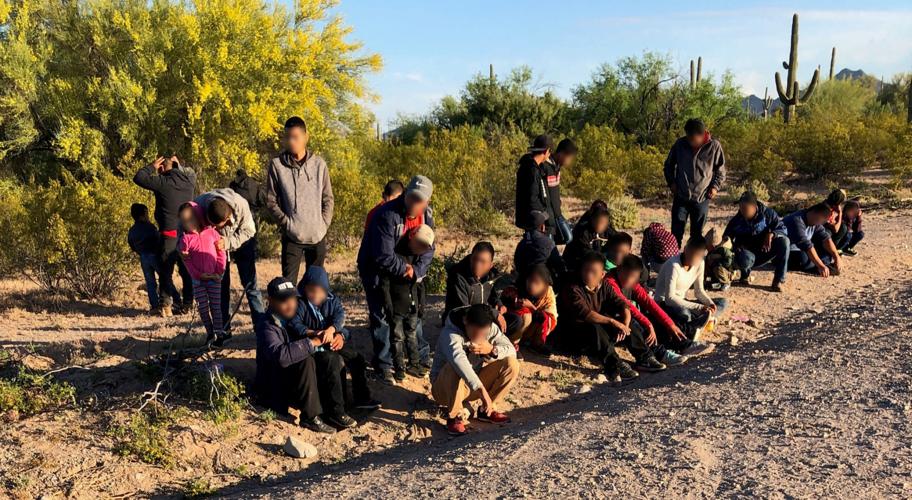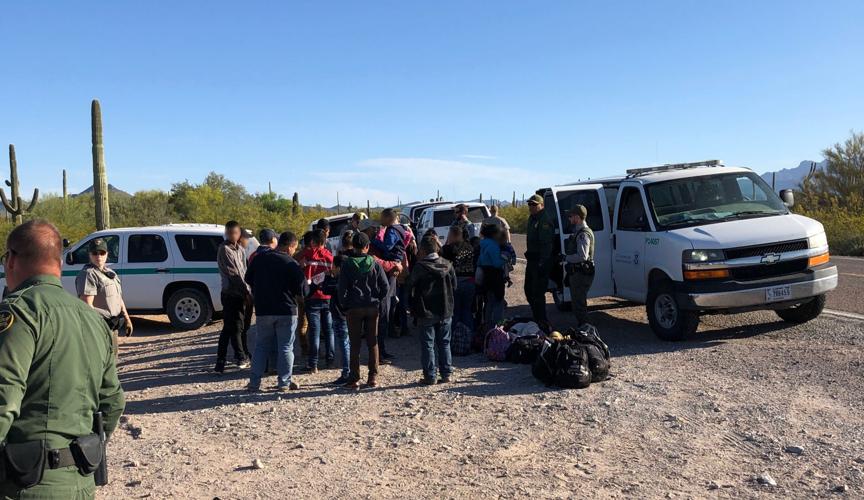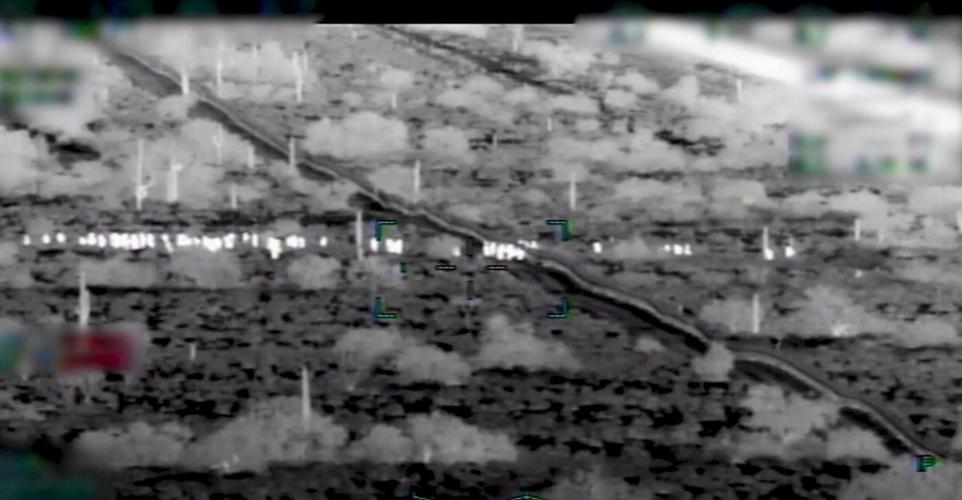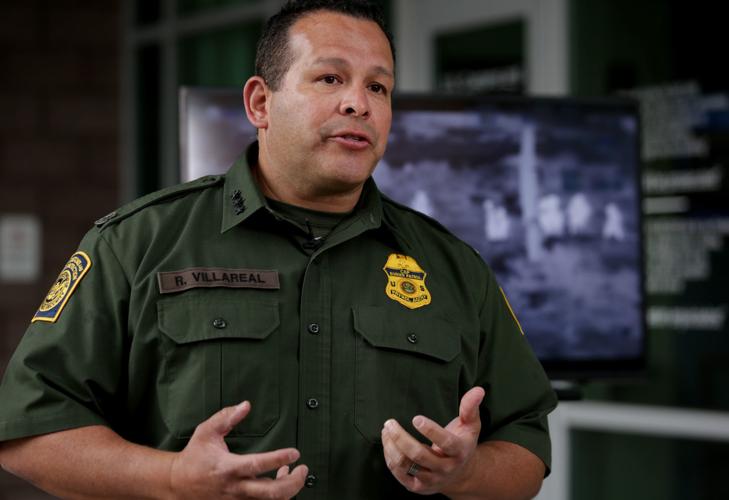Border Patrol agents encountered nearly 400 migrants west of Lukeville Tuesday morning — most of them children — in one of the largest groups encountered by Tucson Sector agents in the last year.
The migrants, mostly families from Central American countries, took charter buses to a spot on a Mexican highway just south of the U.S.-Mexico border.
They got off the buses and “then they all ran right across the border and waited for an agent to show up,” Roy Villareal, chief patrol agent for the Tucson Sector, said at an afternoon news conference.
The section of the border west of Lukeville, a small border town southwest of Tucson, is made up of vehicle barriers rather than a fence designed to stop pedestrians, Villareal said.
Agents started transporting 393 migrants around 6 a.m. and hadn’t stopped as of 4 p.m., Villareal said.
Most of the migrants were children, he said, including 199 children traveling with parents and 41 children traveling by themselves.
While agents in Southern Arizona were processing one large group of migrants, agents in the El Paso area were doing the same with a group of “close to 600” migrants, Villareal said.
Villareal said 40 large groups have crossed the border in the Tucson Sector in the past eight months, creating gaps in border security. On Tuesday, he shut down a checkpoint near Ajo so more agents could help process the migrants.
“Let’s not be deceived here. This is an orchestrated effort by a criminal syndicate” that generates thousands of dollars by bringing migrants to cross the border, he said.
The group was apparently the largest encountered by Tucson Sector agents since groups of 50 or more migrants started arriving near Lukeville last year, according to news releases from the Tucson Sector.
The largest previous group had 325 people, including nearly 150 children. They surrendered to agents on Feb. 7.
In Tucson, local shelters are taking in some of the families after they are processed by Immigration and Customs Enforcement and released to pursue asylum claims.
“We are getting slammed,” said Sarah Reed, manager of the Rincon Migrant Shelter in Tucson, adding the “need is great” for more shelters.
Immigration agencies do not have enough space to house the families, she said, and without shelters “they would be out on the street.”
Instead, families spend a couple of days at local shelters, where they can eat, shower and prepare to “get where they’re going,” Reed said.
The former Benedictine Monastery is taking in hundreds of families, said Steve Kozachik, a Tucson city councilman who volunteers with the monastery.
“We are absolutely struggling to keep pace,” he said.
The volunteers are working with other faith-based organizations in Tucson to find more space, Kozachik said. He applauded the “all hands on deck” attitude of the Tucson community, but he said they are facing a problem: Winter visitors make up a large part of the local volunteer base, and they are leaving.







